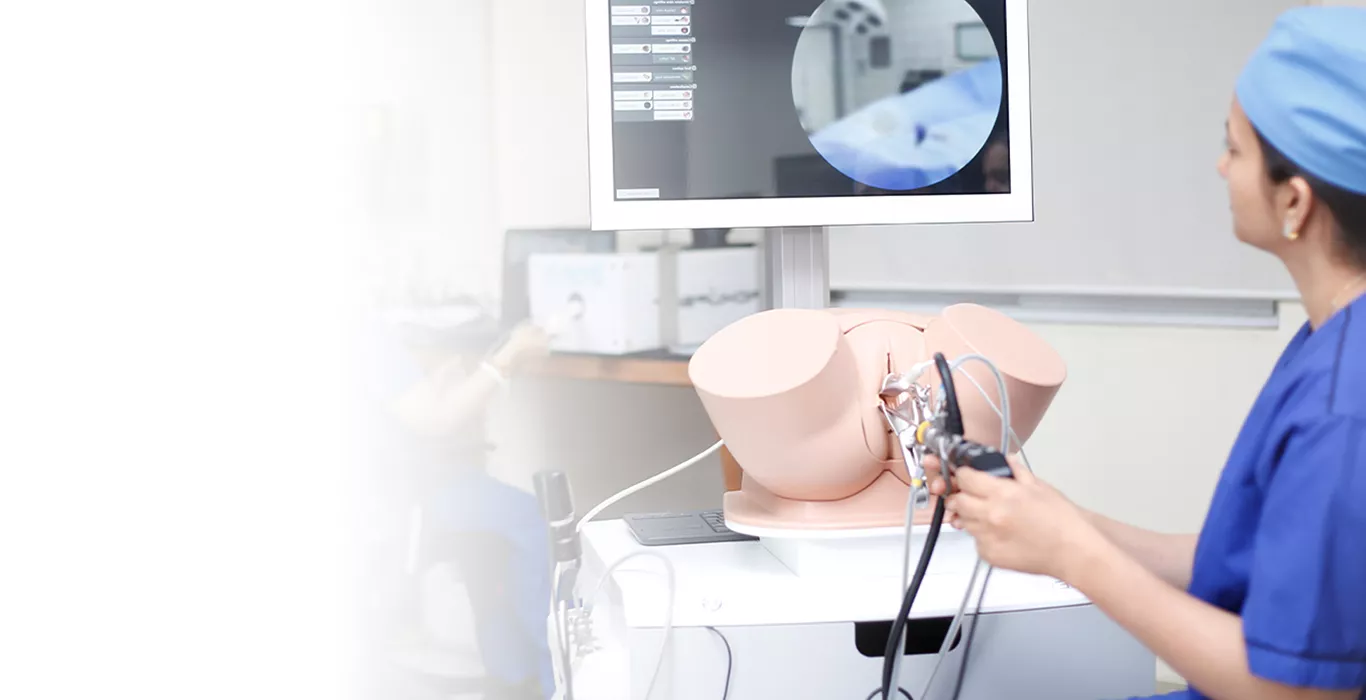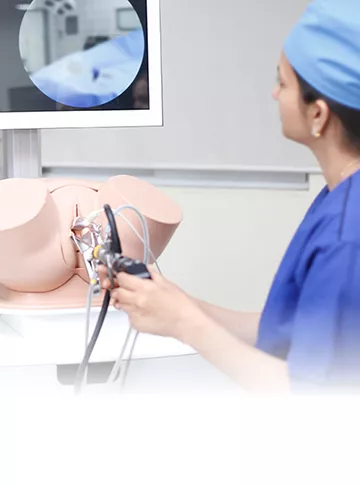Hysteroscopy surgery is performed a week after your period as it allows a better view of the uterus. The procedure is carried out by a specialist surgeon. Prior to surgery, you will be given sedatives to help you relax. Depending on your condition, local, regional, or general anesthesia is given.
Speculum
An instrument called a speculum is used to dilate your cervix.
Insert a hysteroscope
The surgeon will insert a hysteroscope, a thin tube with a light and camera is inserted into the vagina.
Better visibility
To get better visibility, carbon dioxide gas or a liquid solution is inserted through the hysteroscope.
Examine
Hysteroscope allows the doctor to examine the uterus and fallopian tubes.
Diagnosis
Diagnosis is made, and if needed, surgery is performed using small instruments.
Though the procedure is not painful, you may experience slight cramping. The whole process takes five to thirty minutes, depending on the diagnostic and operative procedures needed to be performed.
Benefits of Hysteroscopy
Hysteroscopy is beneficial when compared to other more invasive procedures:
• It requires a short hospital stay
• Recovery is faster
• Less pain and requires less medication after the procedure
• Avoids any open incision for surgery.
Recovery
After the hysteroscopy procedure, you may experience cramping, bleeding or spotting, shoulder pain, dizziness, fever, and nausea. Discuss with your doctor if you experience any of these complications. During the procedure, if only local anesthesia was used, then you will be able to leave the hospital within an hour. If general anesthesia was used, you might have to wait for its effect to wear off. It may take a few hours, or an overnight stay will be advised to keep you under observation. You will be given medication to relieve pain, and if any surgery is performed, you need to rest for one or two days before returning to your work life.
Risks
Hysteroscopy is a safe procedure and complications are rare. Less than 1% of cases may show complications like infection, heavy bleeding, injury to uterus, cervix or bladder, and reactions due to general anesthesia. Consult your doctor if you experience any of these symptoms.
Pregnancy Calculator Tools for Confident and Stress-Free Pregnancy Planning
Get quick understanding of your fertility cycle and accordingly make a schedule to track it
Get a free consultation!
















